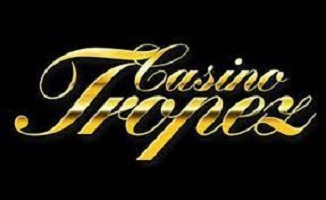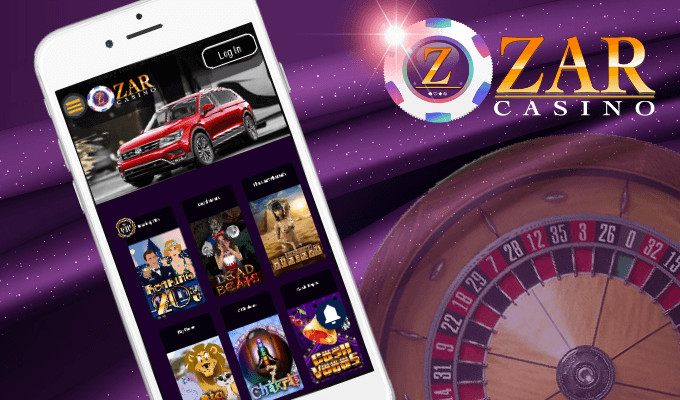Introduction
Welcome to a journey through the colourful landscape of gambling in one of Africa’s most vibrant regions – South Africa. Unlike other parts of the world, gambling has not always found favourable grounds in this region. In fact, the near complete prohibition began as far back as 1673 and persisted well into the late 20th century, save for horse racing, which was regarded as a sport.
The pivotal year in the history of South African gambling came in 1965 when the Gambling Act was enforced. This legislation banned almost all forms of wagering, with horse racing being the solitary exception. However, the prohibition inadvertently caused a surge in unregulated ‘underground’ gambling spots, laying down the roots for today’s flourishing illegal gambling scene.
Interestingly, the journey does not end there. The ban was lifted partially in 1994, and by 1996, the National Gambling Act initiated a system of licensed casinos and a single national lottery. This seemingly liberal approach revolutionized the South African gambling scene. It also prompted the need for stringent regulations for obtaining gambling licences, thereby laying a foundation for the legality of various gambling forms.
While the issue of the legal gambling age steals occasional headlines, it is the discussions around online gambling that have been ongoing and heated in recent years. Is online gambling legal or illegal? What are the laws associated with owning and operating online casinos within the country? What factors influence the cost of a gambling licence?
These are some of the important questions you might be asking. As we navigate through the complex web of gambling laws, prevalence and value of various types of gambling, we will begin to uncover answers. Stay with us as we delve into the frequently asked questions, discuss some concerning social issues tied to gambling and capture a panoramic view of the gambling industry in South Africa.
Prevalence and value
Africa’s southern reach plays host to a pastime capturing the attention of millions, from local citizens to international visitors. This activity comes in many forms and has undergone considerable changes over time, yielding a unique tapestry of regulations and practices spanning centuries.
The national pastime under consideration? None other than gambling, with prevalence ranging across multiple sectors in South Africa’s socio-economic landscape. It has permeated aspects of life, eliciting both passionate engagement from participants and causes for concern among various stakeholders.
As far as value is concerned, the financial significance of this sector is undeniable. It contributes substantially to the economy of South Africa, generating important revenue streams for operators and tax income for authorities. A considerable portion of this fiscal impact stems from operators obtaining necessary licences, an obligatory step to legality. Yet, the cost associated with securing a gambling licence displays wide variations, bound intimately with factors like type of gambling enterprise and specific jurisdictional requirements.
Apart from official contributions to the national treasury, gambling also stimulates commerce in neighbouring industries. However, while some see it as a welcome driver of economic activity, others cast a wary eye on illegal gambling, a perennial issue in South Africa. Adverse effects range from lost revenue due to tax evasion to social costs linked with addiction.
Looking at demographics, there’s no strict cut-off age for engaging in gambling. Still, rising awareness about associated risks have driven initiatives aimed at establishing a legally sanctioned lower limit, making this a point of ongoing debate.
Suffice to say, traversing the interconnected avenues of gambling laws, policies, licensing, and economics requires careful navigation. Stay tuned for the next articles, studded with illuminating facts that paint an ever more detailed picture of this multi-faceted phenomenon pervasive in South African society. And if you’re considering a venture into online gaming, well, we’ll tackle that particular topic head-on soon enough. Buckle up!
Types of gambling
When discussing the state of gambling in South Africa, one cannot overlook the variety of forms it takes within the nation’s borders. The most popular methods include the National Lottery, casinos and horse racing, but the rise of online platforms has broadened the landscape even further.
Understanding these types will provide a comprehensive overview of how the market operates. Firstly, the National Lottery is a widely recognised institution that captures the attention of countless enthusiasts weekly. It operates under strict regulations and falls under the category of regulated gambling activities.
Casinos are another driving force within the gambling sector. With numerous establishments scattered across the country, they offer an extensive selection of games such as slot machines, poker, blackjack, and roulette, among others. These venues also operate under stringent licensing requirements ensuring fair play and customer protection.
Horse racing betting holds a special position as it was excluded from the 1965 Gambling Act prohibition. It has maintained a prominent presence, offering exhilarating spectacles and betting opportunities that keep patrons engaged and entertained.
Finally, the rise of the internet has seen an influx in online gambling platforms which have begun to garner significant attention. Although the legal status of these online platforms remains somewhat hazy, they have undeniably altered the face of the gambling ecosystem. Many players find the convenience of betting from home or on-the-go irresistible, increasing the demand for legal clarity in this segment.
In essence, the gambling landscape in South Africa is diverse and vibrant, encompassing various forms and continuously innovating to fit into modern realities. Despite the concerns around legality, particularly with online platforms, it’s clear to see that the desire for such recreational activity remains firmly rooted in society. Understanding each type’s unique nuances is integral to unpacking the full narrative behind South Africa’s relationship with gambling.
South African National Lottery
When it comes to gambling, the South African National Lottery has always held a unique place in the country’s landscape. Officially launched in 2000, its subsidies are contemplated to be put towards good causes such as education, welfare, and arts and culture to name a few. Reflecting the spirit of the Rainbow Nation, it provides an equal opportunity for all to try their luck.
With various games at its disposal such as Lotto, PowerBall, Daily Lotto and Sportstake, amongst others, South Africans have a wide array of choices when partaking. Nevertheless, it is worth mentioning that this kind of gambling has faced certain legal controversies over the years. Still, its popularity stands firm despite complex dynamics around licensing.
The concept of acquiring a lottery license piques the interest of many South Africans, especially those who have dreams of owning and operating a lottery establishment. However, the process of obtaining such a license is no walk in the park. It involves a hefty price tag as well as complying with several stringent regulations.
Anyone looking to invest in this sector must also consider the legal age for gambling. In South Africa, the gambling age is set at 18 years, so anyone below this age is prohibited from participating in any form of gambling or lottery. As it stands now, it’s not clear whether future legislative changes could see this age limit increase or decrease.
Online aspects aren’t to be overlooked. The rise of the digital era sparked conversations about digital lotteries which lead to the question, ‘Is online gambling illegal in South Africa?’ The response isn’t as simple as yes or no due to other considerations involved. However, this question indicates the growing interest in online gambling platforms and the possibility of seeing more South Africans purchasing their lottery tickets electronically in the near future.
Moreover, an understanding of the socio-economic implications brought on by this form of gambling becomes essential, especially in a diverse market like South Africa where the effects can span across different societal levels.
In conclusion, while the South African National Lottery operates within a highly regulated environment, it continues to draw wide interest from the public, providing them with opportunities for legal gambling. Whether this enthusiasm will remain constant or evolve in the years to come is yet to be seen.
Casinos
Delving into the realm of casinos in South Africa, it is critical to grasp the law surrounding them. The establishment and operation of casinos have been regulated under the National Gambling Act since 2004. Even though extensive restrictions were in place previously, this period witnessed an easing of stern prohibitions and brought about a welcoming atmosphere for hefty investments. The legislation requisites include stringent controls over licensing and adherence to fair play, considering the customer’s interest and security at its core.
Like a flower that blossoms through a crack in the pavement, conventional brick-and-mortar casinos have shown immense resilience even with the rise of online platforms, catering to a diverse clientele throughout the country. These establishments offer a versatile array of gaming experiences ranging from slot machines to table games such as poker, blackjack, and roulette. For the adrenaline seekers or strategy enthusiasts, these avenues provide an enticing experience.
A point often overlooked is the economic impact of these centres. Assembly of top-of-the-line equipment, incorporation of cutting-edge technology, hospitality services, and maintenance involve significant financial transactions creating job opportunities and contributing to the revenue of the nation.
The existence of casinos also initiates discussions on societal issues. While they serve entertainment purposes for some, others may struggle with gaming addictions leading to personal and financial distress. Consequently, measures for promoting responsible gambling are integral to the policy-making process here.
As for acquiring a license to run a casino, various factors are taken into consideration by the regulating bodies. Some aspects scrutinized include the cost impact analysis, socio-economic benefits, and veracity of the business plan.
In a nutshell, the landscape of casinos in South Africa is a dynamic one with its own share of challenges and rewards. Be it a player, an investor, or a spectator, the world of casinos has something to offer for everyone with its glittering lights, clever strategies, and the thrill of uncertainty.
Horse racing
Welcome to section 6 of this insightful exploration into gambling in South Africa. Today’s focus is near and dear to many South Africans’ hearts – horse racing. This age-old sport has a rich tradition and history in the country, tracing its roots back to the vibrant city of Cape Town.
Historically, horse racing was one of the few forms of gambling exempted from regulations. Seen as a sporting activity rather than a form of betting, it holds a unique place within the nation’s gambling landscape. Besides the thrilling equestrian matches, attendees thoroughly enjoy the social atmosphere, dressing elegantly for race days and sipping on champagne as they watch the horses speed down the track.
The prevalence of horse racing in South Africa has influenced the gambling climate significantly. Unlike other forms of betting, horse racing is governed separately under the National Horse Racing Authority (NHRA), which oversees all racing events and implements stringent standards for participant treatment and welfare.
While betting on these races is enthusiastically enjoyed by many spectators, it’s essential to remember the importance of responsible gambling practices. Being aware of one’s spending limit, not using borrowed money to gamble, and understanding that losses are part of the game are crucial actions to ensure safe, enjoyable experiences when engaging in any form of gambling, not just horse racing.
The ease with which one can engage in horse race betting adds appeal to those interested in gambling in South Africa. With apps and websites available for instant access, placing a bet on one’s favorite steed has never been more straightforward. As internet connectivity continues to grow in this region, so too does the ease and prevalence of online horse race betting.
In conclusion, whether participating as a punter or merely an excited spectator, horse racing remains a cornerstone of the gambling environment within South Africa. Its historical significance, coupled with its exclusivity from restrictive legislation, has etched horse races indelibly into the culture of South Africa. As we continue to delve into the world of gambling, remember each journey is best taken with knowledge in hand.
Online gambling
This section looks at online gambling in South Africa, a topic of frequent discussion and debate due to the legal intricacies surrounding it. In recent times, there has been an explosion in the popularity of online gambling worldwide, and South Africa has not been left behind. However, it is not as straightforward when it comes to rules and regulations. In principle, online gambling is not expressly outlawed in South Africa. However, the practice is mired in legal complexities. That said, many South Africans do still partake in some form of online gambling.
Online wagering services often originate from other countries where their operations are legal, with access to South African market provided by the Internet. South Africans can easily explore thousands of betting platforms for gambling activities such as sports betting, poker, bingo, and other forms. This has presented challenges when it comes to issues such as licensing.
The regulatory scope of the National Gambling Board of South Africa is yet to fully encompass online gambling. Consequently, many foreign operators exploit this loophole to draw South African players into using their platforms.
The volatility of current legislative landscape further confuses matters. The North Gauteng High Court ruling of 2010 declared the offering of any online gambling services illegal within South Africa, following which various penalties including fines and imprisonment were imposed. However, an exception was noted for sports betting, which remains legal and licensed.
Yet, numerous online gambling sites continue to operate, citing that their servers are located offshore where South African laws don’t apply. While this puts them technically outside the jurisdiction, they continue to serve the South African clientele. Many South Africans use these sites despite the associated legal risks, drawn by the comfort and convenience of indulging their pastime from the comforts of home. However, possible developments in legislation loom on the horizon, potentially altering the future of online gambling in South Africa.
Licensed gambling sites
While the scope of online gaming in South Africa is still evolving, there are now mechanisms to obtain legitimate permits for operating gaming sites. Securing a licence offers peace of mind for operators and reassurance for players.
The application process entails multiple stages. Importantly, applicants must demonstrate that they possess the necessary skills and resources to operate responsibly.
Licences are not freely awarded; strict regulations are in place to protect public interests. The Gambling Board oversees the issuance of licences to ensure only suitable candidates are approved. Violation of the terms can lead to penalties and revocation of the permit.
Government-sanctioned gambling activities have permitted age restrictions, and providers must commit to promoting responsible behaviour among their patrons.
Discussion around the cost of a gaming license is a critical aspect. Fees are levied as part of revenue generation for the state, and also to discourage frivolous or malicious entrants into the market.
South Africa’s legal stance on online gambling has seen various changes over time, with the most recent regulations being more accepting of the activity. It’s crucial for operators and consumers alike to stay up-to-date on all legal nuances.
In spite of the restrictions and regulations, South Africa’s gambling sector continues to thrive. A striking observation is the rise in online platforms offering gaming opportunities. As technology evolves, the South African market will likely see further advancement in the digital gaming sphere.
Online gaming laws
The landscape for online gaming laws in South Africa has always been a complex one. It’s crucial to understand it for those who wish to engage in online gambling which is otherwise heavily regulated. The major mix-up regarding this subject can be attributed to the Gambling Act of 1965. This legislation banned all forms of gambling, but with the rise of the internet and online gaming, it left the legal waters murky. As a result, many interpretations of the law have emerged.
While there have been amendments to relate to interactive gambling, its legality remains a contentious issue. In terms of the South African National Lottery and racing bets, these are seen as legal due to them being regarded as sporting activities. The licensing process for engaging in such activities, for those interested, may however still seem opaque. Typical search queries regarding these processes heavily involve both the license application procedure and associated cost.
Moreover, an interesting quirk arises involving ‘internet cafes’, a concept that has peaked in popularity recently. These venues have generally escaped the restrictive net cast by the Act due to their status outside traditional gambling avenues. However, establishments and individuals engaged in these acts should tread carefully, ensuring adherence to any regulations that might apply.
As for the future, it’s unclear how the laws may evolve. While legal gray areas persist and the impact on businesses varies, an increasingly interconnected society suggests that shifts in attitudes towards online gambling are more likely a question of ‘when’ rather than ‘if’. Therefore, ongoing vigilance and understanding the intricacies of the legal framework are vital for anyone looking to navigate this arena.
FAQ
As we conclude our exploration into the landscape of gambling in South Africa, it’s essential to address some frequently asked questions surrounding this industry. First, the age of legal engagement in gambling activities in the country is 18 years old. This law applies to all forms of gambling, from horse racing to casino games and lotteries.
It’s also crucial to note that while certain types of betting are permitted in the country, such as casinos and horse racing, the legality of online gambling is a contentious matter. In recent years, online gaming is considered illegal under the National Gambling Act. However, operators licensed within the country can legally offer their services to South African residents.
Obtaining a gambling license in South Africa is not without its hurdles. This applies both to the traditional brick-and-mortar establishments and online platforms. It is a rigorous process that involves compliance with numerous laws and regulations, including the Financial Intelligence Centre Act and National Gambling Regulations.
Illegal gambling continues to be a concern in the country. It ranges from ‘underground’ casinos to illegal online platforms. The government continues to crack down on these activities with stringent laws and hefty fines.
The implications of gambling extend beyond just the economy. It is recognised as a socio-economic issue due to the risks of addiction and associated social costs.
Lastly, if you’re interested to delve into the world of gambling, it is crucial to bear in mind that you must be aware of and comply with all local laws and regulations. Breaking these rules could land you in serious legal trouble, potentially leading to significant financial penalties or even imprisonment.
As always, if you’ve any concerns or uncertainties, it’s advisable to consult with a legal expert who specializes in South African gambling laws.














